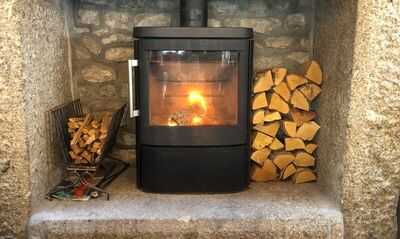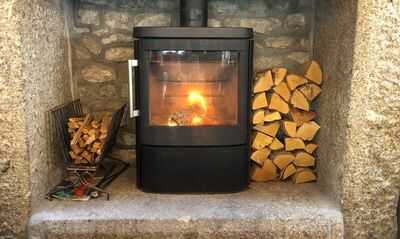
Using wood burners to heat homes has been linked to 2,500 deaths in the UK per year, an eco-organisation has said. Air pollution from wood burning also contributes to serious health conditions, according to research commissioned by Global Action Plan and Hertfordshire County Council.
Larissa Lockwood, Global Action Plan's Director of Policy and Campaigns, said: "An open fire or wood burning stove is the most polluting way to heat a home - air pollution from wood burning stoves is cutting lives short, putting people in hospital and contributing to serious health conditions for people across the UK.
"It's an uncomfortable fact, but the health burden of wood burning on the British public is simply too big to ignore."
A report from the environmental consultancy, Ricardo, suggests air pollution from wood burning in the home contributes to new cases of serious health conditions.
This includes an average 3,741 cases of diabetes and 1,493 of asthma in the UK per year, according to the research.
Global Action Plan says ending "non-essential" wood burning could help prevent thousands of deaths and help save £54million in NHS and £164m in productivity costs.
The organisation said burning in the home is one of the largest sources of toxic fine particle pollution in the country. It said this can cause heart and lung disease and also increase the risk of diabetes and dementia.
The report shows 92% of people burn wood for heating in Britain have alternatives to heat their homes.
Guy Hitchcock, Technical Director for Air Quality at Ricardo, said: "This latest research makes it clear that the burning of solid fuels - such as wood, coal and other materials - has significant impact on not only the health of individuals in households where this takes place, but on the wider community."
The Stove Industry Association (SIA) said it fundamentally disagreed with Global Action Plan's recommendation for an outright ban on domestic wood burning.
In response to the report, the SIA said burning wood in a modern, Ecodesign compliant stove can achieve efficiencies of up to 87% or more.
It said this means they burn far less fuel for the same amount of heat and produce up to 90% less particulate matter emissions compared with an open fire.
The Association said a more effective and deliverable way of improving air quality would be regulating outdoor burning, such as bonfires, and encouraging the replacement of open fires as well as older stoves with Ecodesign compliant alternatives.
A blanket ban on wood burning stoves would also disadvantage households which depend on them to keep costs down and maintain energy security, according to the SIA.
You may also like

Next CJI: Landmark verdicts, humble start

Royal fans call for one major change involving Princess Anne's husband Sir Tim Laurence

Tripura CM inaugurates IAPM-NERCON 2025; announces new canteens, night shelters for patients

MP Minister Kailash Vijayvargiya calls for "strict action" in alleged molestation of 2 Australian women cricketers in Indore

Rich Campbell makes Twitch return with test stream, fans react to comeback







